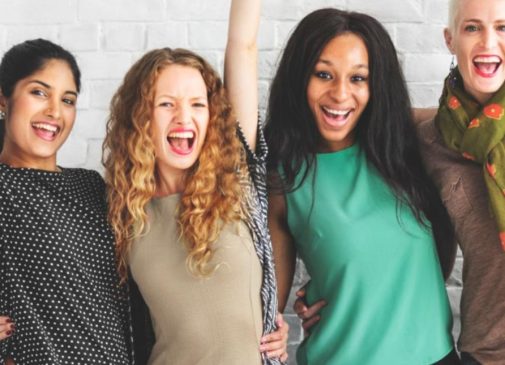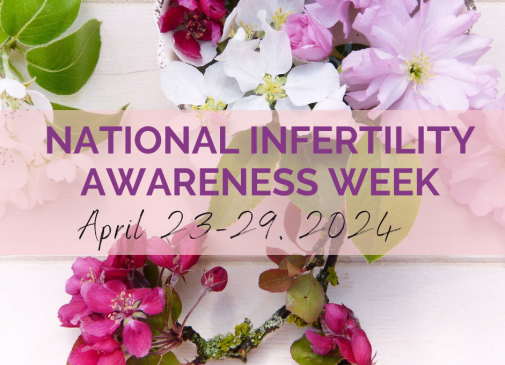
We all know how addicting caffeine can be. The fresh, bitter smell of coffee brewing in the morning, the sparkling carbonation of soda hitting the tongue, and the sweet subtle taste of lemon iced tea sometimes just hits the spot. Stopping by your favorite cappuccino shop before work or picking out your favorite tea at the store suddenly becomes an unbreakable habit you didn’t even know you had.
The topic of caffeine and period cramps can be a difficult subject to find information about due to conflicting studies. Therefore, it’s important to always consult your physician or a women’s health specialist.
What Is Caffeine?
Even though caffeine is a common substance that appears in all kinds of foods, beverages, and even medication, most people are unsure what caffeine is made of. To put it simply, caffeine is a natural stimulant that can be found in coffee, certain types of tea, and cacao plants. It works by stimulating the brain as well as the body’s central nervous system.
Its’ effects depend on the individual; but for many, it helps them stay alert and feel less fatigued over the course of the day. While some caffeinated beverages like green tea may not cause you to feel the same as an energy drink, you should be mindful about how much you’re conjuring on a regular basis.
How Much Caffeine Is Too Much?
According to a recent study, the average adult living in the U.S. consumes close to 200 to 240 mg per day. Dietitians and nutritionists alike advise people to stay well under the daily maximum amount of 400 mg. Although 400 mg seems like a lot of caffeine to consume in one day, you start counting a few cups of joe, a black tea, and three small cans of soda you had at your desk and you may have already surpassed that number.
It’s important to be aware of how caffeine impacts our overall health, including your reproductive system such as your monthly period.
What Types of Food and Beverages Have Caffeine?
You may be surprised to learn that caffeine may be lurking in some foods and beverages you never even thought. A few of these include:
- Chocolate
- Protein bars
- Hot chocolate
- Certain types of cereals
- Energy drinks
- Black and green tea
- Soda Ice cream
- Mints
Remember to always read labels if you’re unsure if the product has caffeine or not. Additionally, some foods have extremely low levels, where they don’t have to list the amount on their nutrition content. If you know you’re sensitive to caffeine, do your research and avoid these items as best as you can.
Are Some Medications Made with Caffeine?
Do you get headaches a lot from staring at your computer screen all day or horrible cramps during your period? If you’ve popped a Midol recently to fight chronic pain, then you may be surprised to learn that it has a significant amount of caffeine in every tablet. One pill of Midol contains roughly 60 mg of caffeine, which is similar to drinking two 12 oz cans of soda.
You may be wondering why Midol has caffeine in their pills. Midol has caffeine because fatigue and headaches are both common symptoms for women on their period. It’s important to consult with your physician before taking medications to combat period pain, especially those with additives like caffeine. Not only are some people more sensitive to caffeine content, but caffeine can potentially lead to increased period pain and other health issues if taken over an extended amount of time.
Caffeine and Period Pain
You’ve probably heard the age-old rumor saying caffeine helps prevent and manage period cramps, but unfortunately that couldn’t be more wrong. Caffeine actually restricts blood vessels, even the ones found in the uterus, and increases estrogen which causes cramps to worsen.
Additionally, caffeine has been found to cause irritability, mood swings, and anxiety which can worsen both physical as well as mental symptoms. If you’re someone who suffers from digestive issues such as diarrhea, constipation, or bloating during your period, you may want to watch your caffeine intake. Consuming caffeine before and during your period can upset your digestive tract which may worsen bowel symptoms. Prostaglandins released by your body during your period can also negatively impact digestion by causing those muscles to contract.
Lastly, caffeine will dehydrate your body, which can cause bloating and severe cramps, so make sure to drink water throughout your day.
Does Caffeine Make Your Period Heavier?
One study published by Science Direct stated that women experienced prolonged periods after consuming caffeine regularly; however, chocolate didn’t seem to have the same effect as other types of caffeine. On the contrary, chocolate consumed in small amounts seemed to help period symptoms such as mood and cramps.
Although caffeine may not directly cause your period to be heavier, studies have shown that caffeine can cause irregular periods ranging from extremely short to longer than 10 days. If you are experiencing prolonged menstrual periods, there may be other underlying causes like uterine fibroids or adenomyosis at play. It’s crucial to speak with a specialist about any period changes you may be experiencing.
Does Caffeine Cause Fibroids to Grow?
Some doctors may recommend women who are at an increased risk of developing fibroids to lay off caffeine, alcohol, and tobacco consumption. This is because all three of these substances affect how your body utilizes and produces hormones.
Additionally, both caffeine and alcohol absorption leads to decreased liver function. This decline inherently causes the body to metabolize estrogen less effectively which could cause elevated hormone levels. Despite these known facts, there are no direct links between fibroid growth and caffeine intake.
Would Going on a “Fibroid Treatment Diet” Work?
We want to be clear that fibroid treatment diets don’t work. While exercising regularly and eating a healthy diet can help regulate hormones and lower body mass index, these healthy habits don’t directly influence fibroid growth. If you have fibroids and have decreased levels of iron (anemia) in your system due to heavy menstruation, a fibroid treatment diet rich in spinach, dried fruit, lentils, pumpkin seeds, turkey, or shellfish could help fight fatigue and other symptoms.
You may see articles advising what food to avoid for fibroids; however, this is not an effective long-term solution for treating fibroids and the related symptoms. Even though people may advertise fibroid treatment diets that claim to work; unfortunately, that is not the case. The only way to treat fibroids is to eliminate them completely through either surgical or non-surgical treatment methods.
Effective Fibroid Treatment Solutions
Caffeine may cause period cramps to worsen or lead to prolonged periods from time to time, but severe, chronic menstrual discomfort is not normal. If you are experiencing painful symptoms like pelvic pressure, enlarged abdomen, discomfort during sex, frequent urination, heavy/long periods lasting more than 10 days at time, it’s important to consult a physician.
Fibroid specialists, also known as interventional radiologists, can help determine the cause of your period pain and find an effective solution that works for you. Both uterine fibroids and adenomyosis are common reproductive conditions that can be treated through nonsurgical techniques like Uterine Fibroid Embolization (UFE).
Don’t wait for your symptoms to worsen, our team at the Fibroid Fighters Foundation can help answer any questions you may have about your period pain. Just give us a call at 855.455.5262 or contact us conveniently online.







